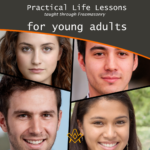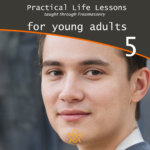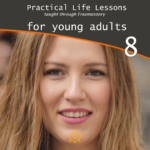A series of articles, produced by the square magazine, offering a guide to practical life lessons, taught through Freemasonry for young professionals, setting out in life after completing full time education.
Lesson 7 How to be open-minded and embrace diversity and inclusion for your personal and professional life
Why it is important to be open-minded and embrace diversity and inclusion for your personal and professional life
1. Open-mindedness and embracing diversity offer valuable insights from people with varying backgrounds and unique experiences. This rich tapestry of perspectives can inspire innovative solutions that might not have surfaced in a homogenous group.
By considering diverse viewpoints, both your personal and professional life benefit from increased creativity, adaptability, and decision-making skills, ultimately resulting in higher overall success.
2. Fostering an inclusive and accepting environment encourages individuals from different backgrounds to collaborate and share their talents. This enriches your personal and professional life by building stronger relationships and deeper understanding across cultural, ethnic, and social divides.
A diverse and inclusive atmosphere also enables everyone to feel appreciated and valued, contributing to their overall well-being and satisfaction.
3. Embracing open-mindedness and diversity helps debunk stereotypes and prejudices that often hinder equity in society. By understanding and appreciating the value of each person’s unique background, we can consciously work towards dismantling unfair assumptions and judgments.
This not only creates a more just and equitable world, but also allows individuals from all walks of life to achieve their full potential without unjust obstacles or limitations.
How to be open-minded and embrace diversity and inclusion for your personal and professional life
To be open-minded and embrace diversity and inclusion, one must first understand the importance and value of diversity in society. This means being aware of and accepting of different backgrounds, cultures, beliefs, abilities, and experiences that people bring to the table.
One way to do this is to actively seek out and engage with people who are different from oneself, whether it be through attending events and workshops focused on diversity and inclusion, joining clubs or organizations that promote these values, or simply having conversations with people from different backgrounds and perspectives.
It is also important to challenge one’s own biases and stereotypes and to be willing to listen and learn from others. This means being willing to have difficult conversations and to consider other perspectives, even if they differ from one’s own.
In addition, it is essential to advocate for and support policies and initiatives that promote diversity and inclusion, such as affirmative action, equal pay, and equal access to education and employment opportunities.
Overall, being open-minded and embracing diversity and inclusion requires a commitment to ongoing learning, self-reflection, and active engagement with others. It is a continual process of growing and expanding one’s understanding and acceptance of diversity in all its forms.
Top Tips
1. Recognizing the value and importance of diversity means appreciating and celebrating the differences among individuals in all aspects of life, including culture, race, religion, and more. By valuing diversity, we create an inclusive and harmonious society that fosters understanding, mutual respect, and equal opportunities for all, leading to greater learning and innovation.
2. Seeking out and listening to different perspectives allows us to expand our mindsets and gain deeper understandings of the world and experiences of others. This involves actively engaging with people from diverse backgrounds, joining discussions, attending events, and educating ourselves, opening doors for greater empathy, awareness, and personal growth.
3. Challenging our beliefs and assumptions is crucial in developing an open-minded attitude. By examining the foundation of our thoughts and asking questions, we may discover new information or realize the presence of biases and prejudices. Continuous questioning and reflection can help us become more accepting and adaptable to diverse thinking.
4. Understanding and respecting others’ unique experiences and backgrounds involves putting ourselves in their shoes, listening without judgment, and genuinely empathizing with their situations. By acknowledging the intersection of different identities and experiences in shaping a person’s life, we demonstrate compassion and create a welcoming atmosphere for inclusive conversations and relationships.
5. Avoiding stereotypes and generalizations prevents us from making unjust assumptions about individuals based on their background. These assumptions can perpetuate misinformation and discrimination. Instead, approach each person as a unique individual with their own strengths, qualities, and stories, promoting fairness and understanding.
6. Open-mindedness means being receptive to learning and growing from diverse perspectives and experiences. We must be willing to adjust our views and perceptions when exposed to new information, recognizing that each person can offer valuable insights that allow us to broaden our horizons and become better-rounded individuals.
7. Being an ally and advocate involves actively supporting and standing up for marginalized and underrepresented groups. This requires using our voices, resources, and influence to challenge discrimination, promote equity, and create inclusive environments. It also means educating ourselves on the issues faced by these groups to effectively amplify their voices and needs.
8. Encouraging and supporting inclusivity means fostering an environment where everyone can feel valued, heard, and respected, regardless of their differences. This can involve establishing organizational policies that promote diversity, creating safe spaces for open discussions, and celebrating diverse cultures and backgrounds in social and work settings.
9. Taking action to address inequality and discrimination involves identifying and confronting both individual and systemic barriers to diversity and inclusion. By advocating for change and participating in initiatives aimed at promoting equity, we can actively contribute to creating a better, more inclusive world that benefits all.
10. Embracing and celebrating diversity as a strength transforms our perspectives from seeing differences as a source of division to considering them as a catalyst for growth and innovation. By recognizing the wealth of knowledge and experiences diverse individuals bring to the table, we can foster collaboration, creativity, and problem-solving, enriching our lives and communities.
If you found this article of interest, please share it with a young person in your family or community.
Full Series

Practical Life Lessons taught through Freemasonry
Learning and Development
A series of 10 learning and development articles, offering a guide to practical life lessons taught through Freemasonry for young adults setting out in life after full time education.
Overall, the lessons taught by Freemasonry are designed to help young adults develop the character, skills, and knowledge needed to succeed in life. By following the principles of brotherhood, charity, and self-improvement, young open minded individuals can build a strong foundation for a fulfilling and meaningful life.
The topics covered in the series are:
Lesson 1. How to communicate effectively and assertively.
Lesson 2. How to manage your finances and budget your money.
Lesson 3. How to take care of your physical and mental health.
Lesson 4. How to build and maintain healthy relationships.
Lesson 5. How to handle difficult emotions like anger, sadness, and fear.
Lesson 6. How to set and achieve goals for your personal and professional life.
Lesson 7. How to be open-minded and embrace diversity and inclusion.
Lesson 8. How to be a responsible and respectful member of your community.
Lesson 9. How to be a good partner and parent, if and when you decide to have a family.
Lesson 10. How to be adaptable and resilient in the face of challenges and change.
more ...
 Practical Life Lessons taught through Freemasonry - P1 A series of articles offering a guide to practical life lessons taught through Freemasonry for young adults setting out in life after full time education - Lesson 1; How to communicate effectively and assertively ? |
 Practical Life Lessons Taught Through Freemasonry - P2 A series of articles offering a guide to practical life lessons taught through Freemasonry for young adults setting out in life after full time education - Lesson 2: How to manage your finances and budget your money? |
 Practical Life Lessons Taught Through Freemasonry - P3 A series of articles offering a guide to practical life lessons taught through Freemasonry for young adults setting out in life after full time education - Lesson 3: How to take care of your physical and mental health |
 Practical Life Lessons taught through Freemasonry - P4 A series of articles offering a guide to practical life lessons taught through Freemasonry for young adults setting out in life after full time education - Lesson 4: How to build and maintain healthy relationships |
 Practical Life Lessons taught through Freemasonry - P5 A series of articles offering a guide to practical life lessons taught through Freemasonry for young adults setting out in life after full time education - Lesson 5: How to handle difficult emotions like anger, sadness, and fear |
 Practical Life Lessons taught through Freemasonry - P6 A series of articles offering a guide to practical life lessons taught through Freemasonry for young adults setting out in life after full time education - Lesson 6: How to set and achieve goals for your personal and professional life |
 Practical Life Lessons taught through Freemasonry - P7 A series of articles offering a guide to practical life lessons taught through Freemasonry for young adults setting out in life after full time education - Lesson 7: How to be open-minded and embrace diversity and inclusion for your personal and professional life |
 Practical Life Lessons taught through Freemasonry - P8 A series of articles offering a guide to practical life lessons taught through Freemasonry for young adults setting out in life after full time education - Lesson 8: How to emerge as a responsible and respectful member of your community inyour personal and professional life |
 Practical Life Lessons taught through Freemasonry - P9 A series of articles offering a guide to practical life lessons taught through Freemasonry for young adults setting out in life after full time education - Lesson 9: How to be a good partner and parent, if and when you decide to have a family. |
 Practical Life Lessons taught through Freemasonry - P10 A series of articles offering a guide to practical life lessons taught through Freemasonry for young adults setting out in life after full time education - Lesson 10. How to be adaptable and resilient in the face of challenges and change. |
masonic knowledge
to be a better citizen of the world
share the square with two brothers

click image to open email app on mobile device








